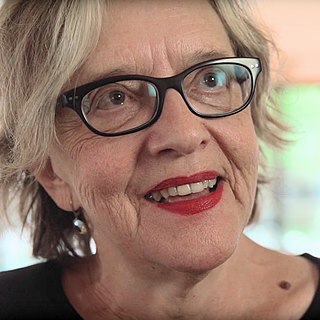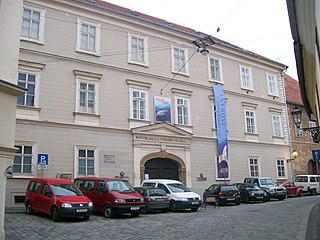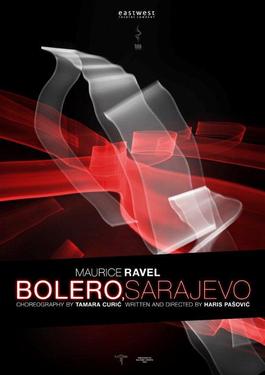Related Research Articles

Zagreb is the capital and largest city of Croatia. It is in the north of the country, along the Sava river, at the southern slopes of the Medvednica mountain. Zagreb stands near the international border between Croatia and Slovenia at an elevation of approximately 158 m (518 ft) above sea level. At the 2021 census, the city itself had a population of 767,131, while the population of Zagreb metropolitan area is 1,086,528.

Velika Gorica is the largest and most populous city in Zagreb County, Croatia. According to the 2011 census, the city itself has a population of 31,341, and the municipality has a population of 63,517 inhabitants.

Slavenka Drakulić is a Croatian journalist, novelist, and essayist whose works on feminism, communism, and post-communism have been translated into many languages.

Tourism in Croatia is a major industry of country's economy, accounting for almost 20% of Croatia's gross domestic product (GDP) as of 2021.
Jagoda Kaloper was a Croatian visual artist, filmmaker, and actress known for various roles in films in the Yugoslav cinema.
Music Biennale Zagreb is an international festival of contemporary music in Zagreb, Croatia, organized by the Croatian Composers' Society. The Biennale, founded by Milko Kelemen and held every spring of the odd years since 1961, has become one of the most important festivals of contemporary music in Europe.
Nera Stipičević is a Croatian pop singer and actress.

Amadeo's theatre was founded in Zagreb, Croatia, in 1797 and lasted until 1834. It was the first continuously operating theatre in Zagreb.
Antal Amade de Várkony was a Hungarian count and notable comes of Zagreb, Croatia, who established the first public theatre in the city of Zagreb in 1797. His father was Count Tádé Amade, (1724–1807), and his mother was the countess Mária Angélika Nyáry von Bedegh (1734-?).
Dalekovod d.d. is a Croatian company, active in electrical engineering and civil engineering sectors. Its primary activities comprise design, production and construction of electrical power structures, electrical substations, power transmission mains, telecommunications structures, road equipment, railway equipment and street lighting. In 2010, net income of the company was 4.7 million kuna, exhibiting a decrease from 110.9 million kuna net income reported for 2009. At the end of the 2010, the company employed 1424 persons. Dalekovod was founded in 1949 as a state owned company, and restructured as a joint stock company in 1993 and subsequently listed at the Zagreb Stock Exchange. It is one of 24 companies included in the CROBEX share index. As of August 2011, head of the company is Luka Miličić. Recently the company has declared its plans to expand in the energy development sector, especially in the field of renewable energy. In 2012, Dalekovod plans to invest into and build a wind farm near Benkovac and Obrovac.

Serb Democratic Forum is a non-governmental organization of the Serbs of Croatia, which in cooperation with national and international organizations and institutions, protects human rights, minority rights, develops and promotes inter-ethnic tolerance and understanding and tries to restore mutual trust and respect.

Bolero, Sarajevo or shortened Bolero is a theatre show produced by the East West Theatre Company from Bosnia and Herzegovina and Tala Dance Center from Croatia. Authors, choreographer Tamara Curic from Zagreb, Croatia and director Haris Pasovic, created a dance performance in which Sarajevo and choreography impressed with Maurice Béjart's work are in interaction. They were largely inspired by the flux of Sarajevo, Ravel's music and 'Béjartesque' swinging bodies. Performance included dancers from Zagreb who regularly collaborate with the TALA Dance Centre, actors of the East West Theatre Company from Sarajevo, and the members of the Sarajevo National Theatre's Ballet Company.
The following is a timeline of the history of the city of Zagreb, Croatia.

Dalibor Grubačević is a Croatian composer, musician and record producer renowned for his works in the field of film music.

The Croatian Natural History Museum is the oldest and biggest natural history museum and the main body for natural history research, preservation and collection in Croatia. Located on Dimitrije Demeter Street in Gornji Grad, one of the oldest neighbourhoods of the Croatian capital Zagreb, it owns one of the biggest museum collections in Croatia, with over 2 million artefacts, including over 1.1 million animal specimens. It was founded in 1846 as the "National Museum". The National Museum was later split up into five museums, three of which were in 1986 merged as departments of the newly named Croatian Natural History Museum. The museum contains a large scientific library open to the public, and publishes the first Croatian natural history scientific journal, Natura Croatica.
Croatian hip hop is a genre of music, and a culture that covers a variety of styles of hip hop music made in Croatia. Croatian hip hop was originally influenced by the American hip hop scene and introduced to Croatia in the mid-1990s. Croatian hip hop, particularly that originating from Rijeka and Zagreb in the 1990s, was mainly concentrated on social issues due to the corruptive system of government at the time. In the 2000s, Croatian hip hop started becoming more mainstream and it spread to Split developing its own hip hop style.

Hulahop d.o.o. is a Croatian ltd. company working in film production and cultural services. Hulahop was founded in 2006 by Dana Budisavljević and Olinka Vištica coming from the years of experience in producing films in Factum and organizing prominent film festivals in Croatia Motovun Film Festival and ZagrebDox.

The Mala Scena Theatre is a theatre in Zagreb, the capital of Croatia. It is credited as Croatia's leading theatre for children. It is also the oldest private theatre for young audiences in Croatia. In 1996, the first Croatian president Franjo Tuđman awarded the founders Vitomir Lončar and Ivica Šimić with the Order of Danica with the figure of Marko Marulić for special merits to culture. In 2009, the theatre received the City of Zagreb Plaque for its work.

Theatre in Croatia refers to the history of the performing arts in Croatia, or theatrical performances written, acted and produced by Croatians. Croatian theatre generally falls into the Western theatre tradition, with influences especially from Italy, Germany, Austria and other European nations.

Clubture is a non-profit, inclusive, participatory network that works on gathering actors and strengthening collaboration between non-profit organizations in Croatia, founded in May 2002 in Zagreb. The network works towards achieving its goals through the exchange of cultural and artistic activities and programs across different parts of the country. It was formally registered on June 16, 2002.
References
- ↑ Batusic, Nikola History of the Croatian Theatre. Skolska knjiga, 1978.
- ↑ "Scena Amadeo". kamo.hr. 2009. Archived from the original on 2012-06-04. Retrieved 2011-03-14.
- ↑ "Klupska kazališno-glazbena scena Amadeo 2010". culturenet.hr. 2010. Retrieved 2011-03-14.
- ↑ "Scena Amadeo". kamo.hr. 2009. Archived from the original on 2012-06-04. Retrieved 2011-03-14.
- ↑ "O nama". Scena Amadeo. 2010. Retrieved 2011-03-14.
- ↑ "Koncerti-izvještaj". Croatian Society of Composers. 2007. Retrieved 2011-03-14.
- ↑ "O nama". Scena Amadeo. 2010. Retrieved 2011-03-14.
- ↑ "Na kazališne predstave i koncerte u muzej". Zagreb Tourist Board. 2010. Archived from the original on July 21, 2011. Retrieved 2011-03-14.
- ↑ "Tjedan Izraela 2010". Židovska općina Zagreb. 2010. Retrieved 2011-03-14.
- ↑ "Na kazališne predstave i koncerte u muzej". Zagreb Tourist Board. 2010. Archived from the original on 2011-07-21. Retrieved 2011-03-14.
- ↑ "Kamenopisna karta Hrvatske". Croatian Natural History Museum. 2010. Retrieved 2011-03-14.
- ↑ "O nama". Scena Amadeo. 2010. Retrieved 2011-03-14.
- ↑ "Koncerti-izvještaj". Croatian Society of Composers. 2007. Retrieved 2011-03-14.